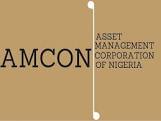Despite promises by the BUA Cement’s management to deliver cement at lower prices to consumers this year, a new report by Cardinal Stone, a full-service investment banking and multi-asset management firm, has projected that prices of the commodity may further soar this year.
The just published report titled “Nigeria Cement Rebounding from a Tumultuous Year” indicated that year 2023 was challenging for operators in the nation’s cement industry due to the devaluation of the Naira in June and other macroeconomic and weather-related factors
Though the report projects that the prices of cement may increase this year, it foresees a rebound in the sector’s performance in 2024 based on the increased infrastructure budget in 2024, the creation of the Infrastructure Support Fund (ISF) by the government, the implementation of the (AfCTA) as well as increased production capacity of existing manufacturers.
On pricing, the report specifically predicted that cement prices would maintain upswing trend as producers will be contending with rising operational costs, volatility in the forex market, and high inflation rate.
The firm clarified: “Barring a potential price war between players in response to BUACEMENT’s ex-factory price slash, we maintain that average cement prices would remain elevated in Q4’23E and FY’24E as players aim to protect their margins from rising operating costs occasioned by still-high inflationary pressures and strong volatility in the foreign exchange.”
According to the multi-asset management company, the increased adoption of natural gas in production kilns and distribution vehicles and projected declines in natural gas prices globally will result in ease in cost pressures on cement producers and distributors will significantly reduce operational costs for cement producers.
It projected that some of the current distribution cost pressure would ease as players increase the adoption of the relatively cheaper natural gas to AGO, especially for distribution.
It would be recalled that last September, the Chairman of BUA Group, Abdulsamad Rabiu, announced plans by the company to crash cement prices from over N5,000 per bag of 50kg to N3,500 effective from October 1.
However, investigations in the cement market showed that the target was not achieved as retailers are currently selling the BUA cement at prices ranging from N5,200 and N5,500 per bag across the geopolitical zones, justifying their actions on rising logistics and other costs.
Despite promises by the BUACEMENT’s management to deliver cement at lower prices to consumers this year, a new report by Cardinal Stone, a full-service investment banking and multi-asset management firm, has projected that prices of the commodity may further soar this year.
The just published report titled “Nigeria Cement Rebounding from a Tumultuous Year” indicated that year 2023 was challenging for operators in the nation’s cement industry due to the devaluation of the Naira in June and other macroeconomic and weather-related factors
Though the report projects that the prices of cement may increase this year, it foresees a rebound in the sector’s performance in 2024 based on the increased infrastructure budget in 2024, the creation of the Infrastructure Support Fund (ISF) by the government, the implementation of the (AfCTA) as well as increased production capacity of existing manufacturers.
On pricing, the report specifically predicted that cement prices would maintain upswing trend as producers will be contending with rising operational costs, volatility in the forex market, and high inflation rate.
The firm clarified: “Barring a potential price war between players in response to BUACEMENT’s ex-factory price slash, we maintain that average cement prices would remain elevated in Q4’23E and FY’24E as players aim to protect their margins from rising operating costs occasioned by still-high inflationary pressures and strong volatility in the foreign exchange.”
According to the multi-asset management company, the increased adoption of natural gas in production kilns and distribution vehicles and projected declines in natural gas prices globally will result in ease in cost pressures on cement producers and distributors will significantly reduce operational costs for cement producers.
It projected that some of the current distribution cost pressure would ease as players increase the adoption of the relatively cheaper natural gas to AGO, especially for distribution.
It would be recalled that last September, the Chairman of BUA Group, Abdulsamad Rabiu, announced plans by the company to crash cement prices from over N5,000 per bag of 50kg to N3,500 effective from October 1.
However, investigations in the cement market showed that the target was not achieved as retailers are currently selling the BUA cement at prices ranging from N5,200 and N5,500 per bag across the geopolitical zones, justifying their actions on rising logistics and other costs.




